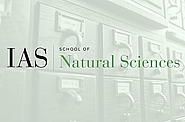Joint IAS Princeton University Astrophysics Colloquium
Feb
17
2026
Institute for Advanced Study / Princeton University Joint Astrophysics Colloquium
Little Red Dots as "Black Hole Stars"
Rohan Naidu
11:00am|Peyton Hall, Peyton Auditorium
Feb
10
2026
Institute for Advanced Study / Princeton University Joint Astrophysics Colloquium
Mapping the Solar System with the Rubin C. Observatory
Mario Juric
11:00am|Peyton Hall Auditorium
Feb
03
2026
Institute for Advanced Study / Princeton University Joint Astrophysics Colloquium
Supercomputer Simulations of the Universe
Volker Springel
11:00am|Peyton Hall Auditorium
Jan
27
2026
Institute for Advanced Study / Princeton University Joint Astrophysics Colloquium
The Role of Bayesianism and Anthropics in Searches for Life
David Kipping
11:00am|Jadwin A10, Princeton University
Dec
02
2025
Institute for Advanced Study / Princeton University Joint Astrophysics Colloquium
Understanding Supermassive Black Hole Mergers through GRMHD Simulations
Manuela Campanelli
11:00am|Bloomberg Lecture Hall
Nov
25
2025
Institute for Advanced Study / Princeton University Joint Astrophysics Colloquium
Towards Probing the Origin of Individual Black Hole Mergers
Johan Samsing
11:00am|Wolfensohn Hall
Nov
18
2025
Institute for Advanced Study / Princeton University Joint Astrophysics Colloquium
Magnetism and morphology in the interstellar medium
Susan Clark
11:00am|Wolfensohn Hall
Nov
11
2025
Institute for Advanced Study / Princeton University Joint Astrophysics Colloquium
Searching for Supermassive Black Hole Binaries: Gas, Gravity, and Gravitational Waves
Daniel D'Orazio
11:00am|Wolfensohn Hall
Nov
04
2025
Institute for Advanced Study / Princeton University Joint Astrophysics Colloquium
Looking for Black Holes in all the Wrong Places
Ryan Chornock
11:00am|Wolfensohn Hall
Oct
28
2025
Institute for Advanced Study / Princeton University Joint Astrophysics Colloquium
Battling the underdetermination of dark energy
Pedro Ferreira
11:00am|Wolfensohn Hall
